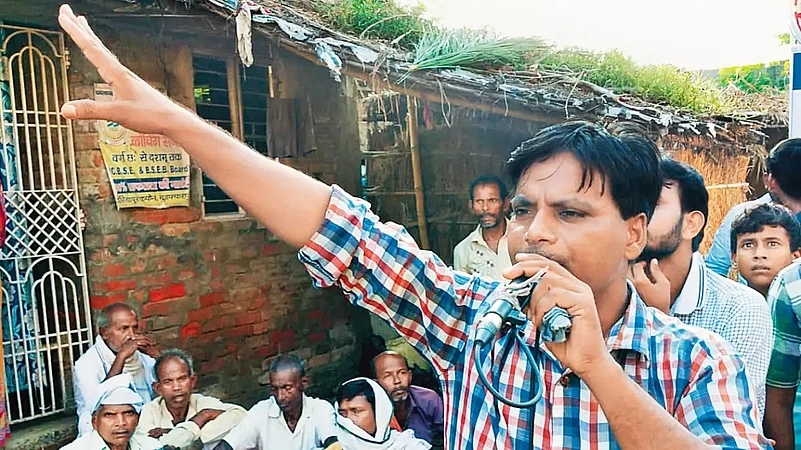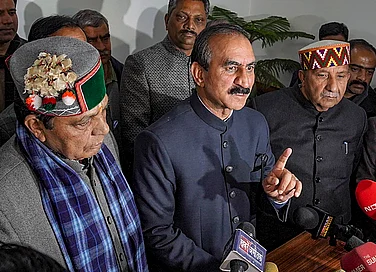Migrant Candidate
When I decided to contest the elections as an independent candidate from Kurhani assembly constituency of Muzaffarpur district of Bihar in the year 2020, my election issue was the plight of migrant labourers. I have been a migrant labourer for 10 years and am aware of their problems. I have seen the kind of conditions that Bihari workers face in other states. So I thought, why don’t I make it an election issue. Though I could not win that election—I managed to get only about 4,000 votes—I am happy that I fought. Last year there was a by-election on this seat, so I contested again, and lost again. I am not giving up hope yet. I will fight the 2024 general election as an independent candidate.
Hard Lessons
In my village, I used to see boys migrate out by the time they were 16 or 17 years old. When they stopped studying, their parents would tell them they should migrate to other states as there were no job opportunities here in the village. When they come to the village during festivals wearing good clothes and shoes, we would be envious.
My father himself was a migrant worker. He would return home for a few days on occasions like Holi or Chhath Puja, and go back to the city as soon as the festivals were over. My mother would look after me. I was good at studies and wanted to complete them but our financial situation did not allow it. My father also did not show much interest in teaching me. I was able to study only till the 7th standard.
Delhi is Bihar
I left for New Delhi at the age of just 18, in 1999. It was my first solo trip to a city. I would hear fascinating stories about Delhi from people around us who were working there, of Lal Quila and Qutab Minar and India Gate. But when I started living there, my perspective of Delhi changed. I was not a tourist in Delhi, I was a migrant labourer. From this perspective, it is not much different from Bihar. I realised that for a poor boy like me, work is the only way to survive, whether it is New Delhi or Bihar. Electrical work fascinated me from childhood, so I decided to work as an electrician. I learned the work in New Delhi and opened my small shop.
All work, No pay
One day, I returned to my village and was sitting in my village school, when an elderly woman came with a pick-axe and sat beside me. She said that she has been working for six months but had not been paid. I asked her what she did for work. She said it was work under the MGNREGA scheme. The matter ended there. I returned to Delhi but the word MGNREGA was echoing in my mind. One day I went to the cyber cafe next to my shop and searched for MGNREGA on the computer. From there, I went to the dashboard of my panchayat. There were the names of the people of my village and it was written that they worked in MGNREGA and they were also paid wages. I took a printout of the papers and returned to the village to meet those whose names were on the list. When I asked the villagers about MGNREGA work, almost everyone said they had not gotten any work nor had they received any money. Word spread in the village that I was enquiring about MGNREGA. The local mukhiya—panchayat chief—came and threatened me not to ask questions and to return to Delhi. Many fake FIRs were registered against me. After a long struggle, and with the help of activists like Nikhil Dey, Aruna Roy and economist Jean Dreze, I returned to the village again in 2012 and started making people aware of MGNREGA. They started getting work and wages. Migration is a big problem in Bihar but it does not become an issue in any election. I think political parties do not raise the issue of migration because they think once the workers become aware, they will stop voting on the basis of caste or religion. At least one person migrates from almost every house in Bihar. If this population wants to, they can change the government.
(As told to Umesh Kumar Ray)
(This appeared in the print as "Bihar Diary")
Sanjay Sahni is a migrant worker and MGNREGA activist who has fought assembly elections from Kurhani seat as an independent candidate





















